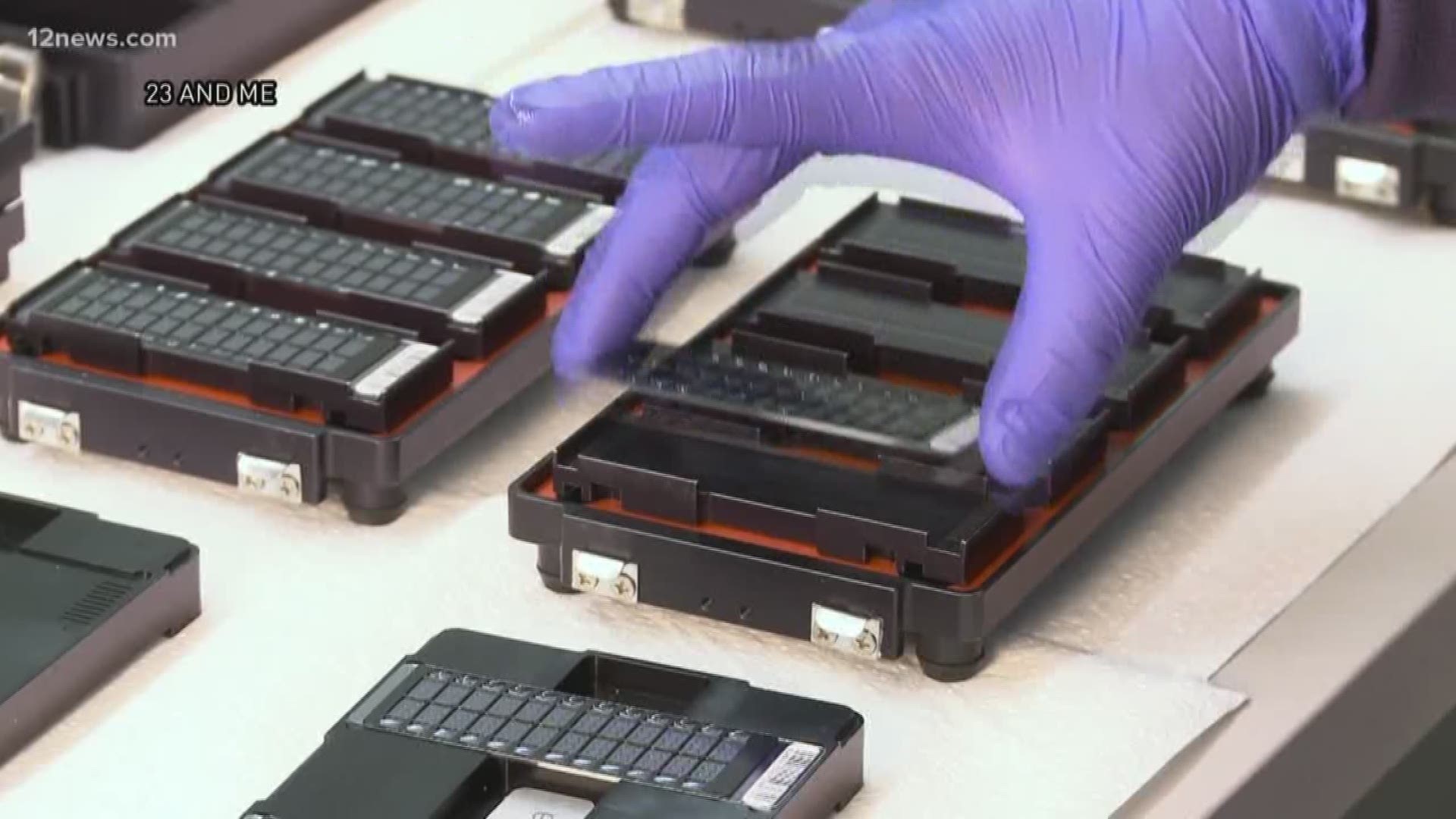PHOENIX — At-home DNA test kits have been very popular as a way to find out about your ancestry and link lost relatives. But nowadays, more people are using these tests to learn more about their health.
Arizona Smith is one of them. She’s always been fascinated with her ancestry.
“I was always wondering where we came from. I've had various stories from my mom but I've always wondered, let's have a breakdown, let's see what it is,” Smith said.
Smith wanted to know more about her health, considering sickle cell disease and Alzheimer's disease runs in her family.
So she ordered a health and ancestry kit through 23andMe, a service that includes the full 23andMe ancestry service and more than 90 reports on genetic health risk, carrier status, wellness and physical traits.
The company says it is the first and only genetic service available directly to consumers that includes reports that meet FDA requirements for clinical and scientific validity.
Jhulianna Cintron, 23andMe’s customer relationship specialist, said, “Our genetic health risk reports can tell you if you have a variant that puts you at a high risk of developing a disease. Our carrier status test can tell you if you have a variant that you can pass on to your children.”
But, Cintron stressed, “We are not a diagnostic service; we're not telling you if you are going to get the disease or even if you have it. It's just what your risk is.”
Kim Brussow, a certified genetic counselor for the University of Arizona Cancer Center at Dignity Health, said, “I think they're accurate in what they're designed to pick up.”
But in general, she believes you should never replace your doctor visits with these at-home DNA tests.
“They should see a physician or genetic counselor, someone who's well versed in this technology to get confirmation testing, but also to really go through what that result means for them. Even if someone is positive doesn't mean they will develop that disease.”

